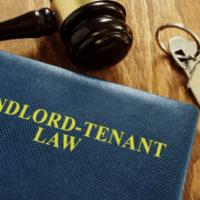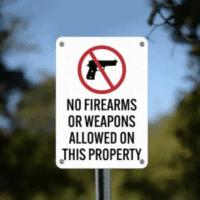The state is in the process of creating rules that govern the licensure and certification of charter school leaders.
It’s a move that the executive director of Delaware Charter Schools Network said is offensive and degrading.
“It’s absolutely beyond ridiculous and it’s infuriatingly insulting,” Kendall Massett said Tuesday. “Especially the suggestion that those of our current leaders that do not have traditional licenses and certification aren’t qualified.”
The move flies in the face of charter schools’ ability to try fresh and different ways to educate students, which is the reason that charter schools exist, she said in last week’s board meeting.
Requiring certifications was one of the suggestions made by the Delaware Professional Standards Board, which will vote on the issue next month and then bring it to the Delaware State Board of Education.
During last week’s State Board of Education’s meeting, Education Secretary Mark Holodick said Delaware wants to make sure charter school heads are certified and licensed in accordance with the requirements of district school leaders.
The state’s charter school law, now nearly 30 years ago, never required charter leaders to hold licensure and certification within Delaware.
Holodick pointed to a deputy attorney general’s opinion that in February, 2022 said charter leaders needed to be certified and licensed like all traditional 19 School District leaders.
“We have charter leaders who are fully licensed and certified and we have some who are licensed but not certified as leaders and we have some who have no licensure and certification,” said Linnea Bradshaw, executive director of the Delaware Professional Standards Board.
MORE IN EDU: School bus contractors call for higher pay, expanded benefits
Massett said this issue stems from 2010, when the definition of educator in Delaware Code was changed to include charter schools.
“It triggered a bunch of things that I don’t think anybody was thinking,” she said. “This need to require all charter school leaders to be licensed and certified just never came.”
For existing charter school leaders, the standards board proposed a traditional certification model, and an alternative method for new charter school leaders to get certified through a portfolio.
The board suggested adopting the options for certification for charter school leaders who are employed before June 30:
For certification, charter school leaders may either:
- Enroll in a traditional or alternative route to certification program that leads to traditional administrator certification and complete the program within three years.
- Earn approval for a digital portfolio submitted to an external vendor who will review work samples to measure competency and alignment to professional standards for educational leaders.
The second option would have charter leaders complete a portfolio that follows a rubric for administrators. It could include professional learning if an individual leader needs help completing the portfolio.
“They would be uploading narrative and evidence to demonstrate competence in all of the standards as it relates to their work in the charter school,” Bradshaw said.
For licensure, charter leaders – and all educators – must have at least a bachelor’s degree and have completed student teaching or internship experience.
To fulfill the student teaching/internship requirement, the leader must complete up to three years of related professional leadership or management experience. This requirement is only for leaders who are not currently licensed.
“A piece of paper does not make a leader, period,” Massett said. “Licensing and certification does not make a leader, and in the case of a charter school, the traditional routes for school leadership do not apply. They don’t hurt, but they certainly are not necessary.”
She said the Department of Education has made it abundantly clear that it isn’t looking to put anybody out of a job and isn’t targeting existing charter school leaders who aren’t certified or licensed.
“I personally believe that the secretary has the ability to waive that,” Massett said. “It’s in every single regulation. There is a waiver piece and they could just grandfather them in.”
It doesn’t make sense for district and charter school leaders to have the same exact requirements, Massett said, since their jobs differ so much.
“Our leaders are running a nonprofit,” she said. “They are the superintendent of a school and they don’t have all of the funding and all the people and all the capacity that an actual district school does.”
Charter leaders have to be excellent marketers to raise funds and drive enrollment, Massett said, which are responsibilities district leaders don’t have.
Because the success of a charter largely depends on a leader’s ability to raise money, attract students and then educate them, charter leaders have to understand public relations and customer satisfaction more than their district counterparts.
There was no vote Thursday on what certification and licensure requirements for charter school leaders would be adopted.
The Professional Standards Board will vote in its March 2 meeting at 5 p.m. For meeting information, click here.


Raised in Doylestown, Pennsylvania, Jarek earned a B.A. in journalism and a B.A. in political science from Temple University in 2021. After running CNN’s Michael Smerconish’s YouTube channel, Jarek became a reporter for the Bucks County Herald before joining Delaware LIVE News.
Jarek can be reached by email at [email protected] or by phone at (215) 450-9982. Follow him on Twitter @jarekrutz and on LinkedIn
Share this Post








